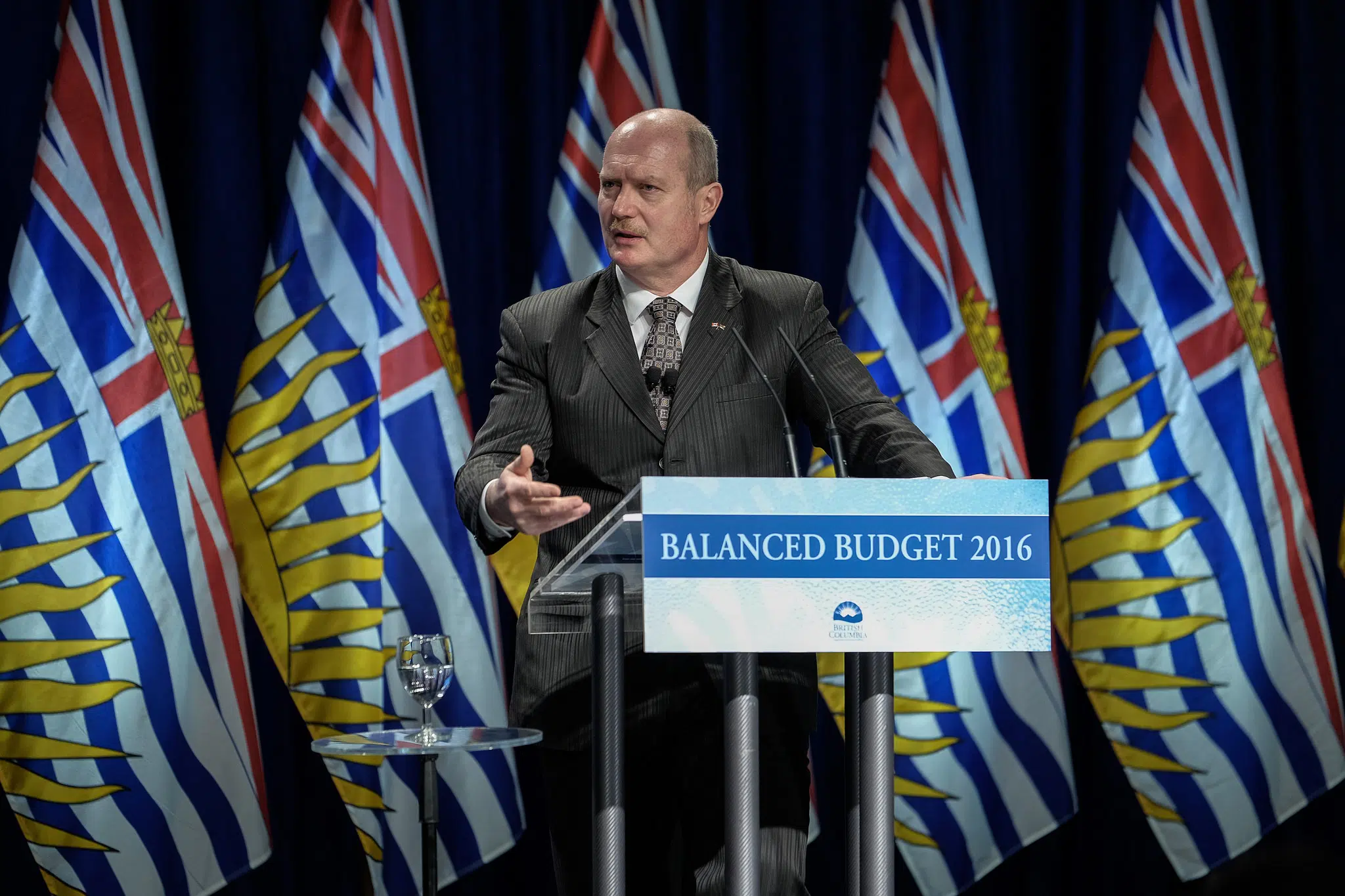
B.C. delivers 4th balanced budget
VICTORIA — British Columbia moved to make room in Metro Vancouver’s incredibly tight real estate market Tuesday with tax changes that aim to help buyers and builders of homes valued up to $750,000, while targeting those able to afford properties valued over $2 million.
Finance Minister Mike de Jong tabled B.C.’s fourth consecutive balanced budget, posting a surplus of $264 million.
The Liberal government said housing affordability, especially for first-time home buyers, is an area of major concern, where average prices for homes in many Metro Vancouver neighbourhoods are above $1 million.


